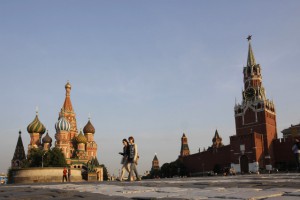
It brought back fond memories of working on economic and trade issues as a diplomat in Beijing in 2001, when it was China who was joining the WTO. I remember how WTO accession was a lightning rod for China’s reform programme and a significant step, symbolically, economically and politically. The Chinese leadership knew it would mean major adjustment and dislocation for tens of millions of Chinese workers but the overall prize was such that they drove through the process.
Fast-forwarding to the present day and my role as the UK representative to the Organisation for Economic Co-operation and Development (OECD) in Paris, one practical result of Russia’s WTO membership will be increased focus on its other accession process – to join the OECD, which began in 2007.
Russia’s political leadership is already sending out clear signals. At the St Petersburg Economic Forum in June President Putin said “We are stepping up our efforts to have Russia join the Organisation for Economic Cooperation and Development. I think this could happen in 2014”, which is when Russia also hosts the G8. First Deputy Prime Minister Shuvalov is leading the effort, and Russia has helpfully set up a small office in Paris to facilitate closer co-operation. There have been some examples of good progress, and it is excellent news that Russia will join the OECD-affiliated Nuclear Energy Agency on 1 January 2013. But there are also areas where progress has been slow.
Joining the OECD is different to joining the WTO. It isn’t so much a negotiation. It is about meeting a challenging array of technical standards and criteria right across the economy. In that sense the pace of accession is in Russia’s own hands.
The UK strongly supports Russia becoming a member if it can meet these standards. Such an important global player should be in a position to play a constructive role in an international standard-setting body like the OECD.
And the OECD should be tremendously useful to Russia. Like all OECD members it would be able to see how other countries do things; get innovative and objective OECD analysis and policy advice; have external validation of sometimes difficult domestic reforms; and welcome the pressure from its peers to live up to tough shared standards – on issues from environmental regulation to anti-bribery legislation.
The important thing now is a shared understanding between Russia and OECD member governments as to exactly what technical work needs to be done in the months ahead, and that quiet, effective progress can be made.

